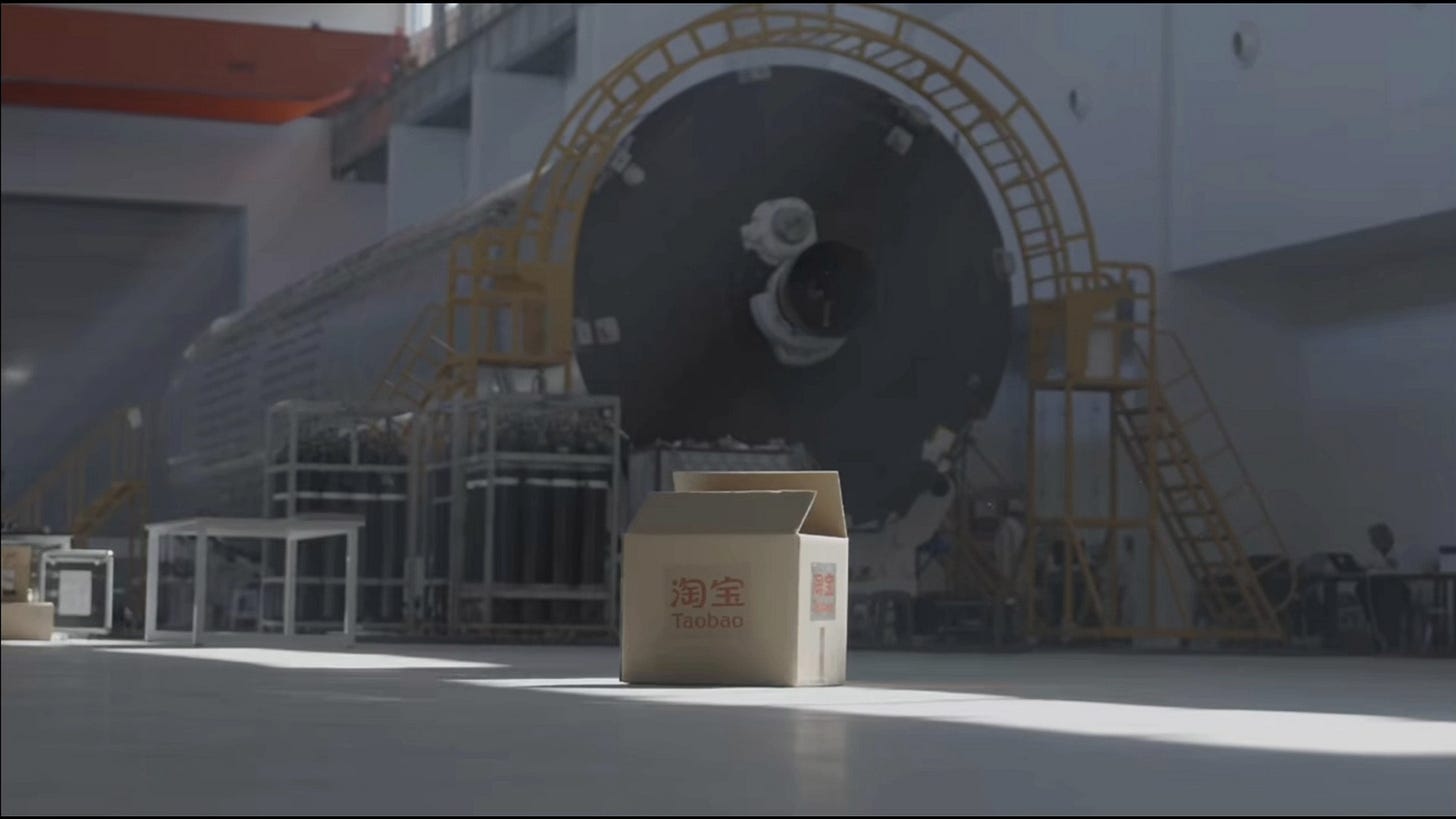Taobao Is Still Serious About Deliveries via Rockets
"Rocket delivery is more than just an April Fool's joke to us."
Point-to-point cargo delivery via reusable rockets is a potential revenue stream that SpaceX is exploring with its Starship-Super Heavy launch vehicle, going so far as to transport a banana from South Texas to the Indian Ocean. However, SpaceX isn't the only company exploring this.
E-commerce giant Taobao (淘宝) announced in April 2024 that it will be partnering with Space Epoch, a privately backed start-up developing a reusable rocket, to investigate point-to-point cargo transportation utilising a rocket's first stage. With a possible cargo mass of up to 10 tons, the partnership will explore allocating 120 cubic meters of cargo volume inside Yuanxingzhe-1's (元行者一号) first-stage stage.
If fully pursued and developed, Yuanxingzhe-1 will transport various cargoes on behalf of Taobao hundreds of kilometres from a launch pad, where cargo would probably be loaded late, in under an hour. Taobao's cargo would be retrieved and shipped out during the rocket's recovery operations, which would see it softly splash down in the water.
The two companies have recently made some progress toward rocket-based cargo delivery through a 2.5-kilometer hop test on May 29th, which saw the test vehicle fished out from the ocean for inspections and future testing. Success on Space Epoch’s part was announced quickly, with Taobao holding off for just over a week.
In the week following the test, on June 5th, Taobao shared that they had flown cargo onboard the Yuanxingzhe-1 vertical takeoff vertical landing test vehicle, adding "rocket delivery is more than just an April Fool's joke to us" in reference to the poor timing of the 2024 announcement. But Space Epoch founder Wei Yi (韦奕) had a more humorous tone when talking to Chinese media, sharing:
"Package delivered, please check!" — "The experimental parameters show that the express delivery warehouse1 meets the expected standards in fire resistance, moisture resistance and shock absorption," — "With the routine use of reusable rockets and the engineering application of stainless steel, rocket delivery costs are expected to drop significantly."
The cargo onboard, around 20 kilograms in weight, was within a standard cardboard consumer shipping box that was then within a fireproof container, which was also in a waterproofed cargo section of the vehicle, as a standard Taobao set for Space Epoch. Items flown within the cardboard box were not delicate items and are now on sale to commemorate the rocket test, according to the company.
Regarding the future of rocket-based cargo delivery, Taobao stated:
“Next, Space Epoch will work with Taobao to further improve the rational layout of express warehouses, expand the types of goods delivered, such as fresh and fragile goods, and optimize a series of express-related contents such as the express delivery in and out of warehouse processes2.”
“Ideally, a launch, in addition to the cargo in the cargo compartment of the first-stage rocket, which can be taken out by landing the rocket, can also accomplish the task of airdropping the cargo during the flight with the cooperation of the second-stage and other secretive hardware that is inconvenient to disclose.”
If there are any problems with this translation please reach out and correct me.
Cost is currently expected to be the major limiting factor for utilizing Yuanxingzhe-1’s first-stage for cargo delivery, and is likely to be limited to critical deliveries for remote areas and emergency scenarios initially. As the rocket ramps up its launch rate, a decrease in cargo delivery costs is expected. It is unknown if Space Epoch will perform point-to-point cargo-only flights of its rocket.
What Taobao and Space Epoch are calling the rocket’s package delivery section.
What Taobao is calling the loading and unloading of cargo.



